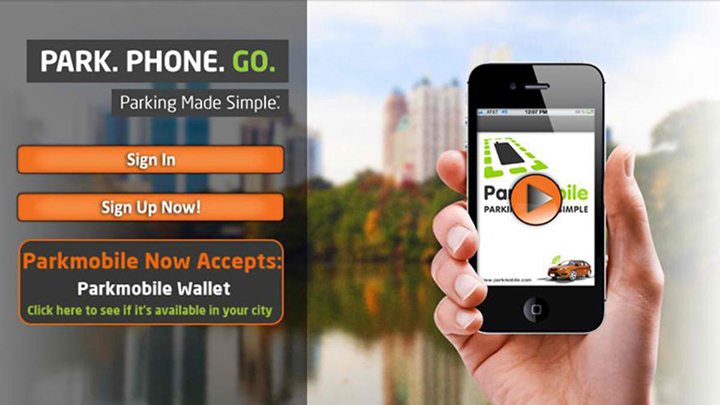
Smartphone technology has enabled users to make the process of finding or paying for a parking space infinitely easier, but as more app makers push the envelope for better deals, some cities are pushing back.
There has been an explosion of mobile apps for parking in just the past year. Today, nearly every major American city and quite a few international capitals are on the radar of apps that offer ways to find available spaces and discounted deals for hard-to-get parking.
Just a few weeks ago, one of the apps that has been growing in popularity - SpotHero - announced the addition of San Francisco to the list of metropolitan areas it covers. The company, which has been offering its service in eleven major cities including New York and Chicago, works with local parking operators to give users of their app what they call "exclusive deals with parking lot owners so you can save 50% off posted prices."

While San Francisco has been willing to let apps like SpotHero operate in their city, they have not been so welcoming about mobile services like Haystack and MonkeyParking who have introduced a new wrinkle to the parking space wars: selling a space to the highest bidder.
These new apps, many of which appeared earlier this year, seek to capitalize on the willingness of desperate drivers to find a space at any cost. Under the MonkeyParking model, a lucky driver finds a street space and then advertises it for sale, generally anywhere from $5 to $20.
San Francisco City Attorney Dennis Herrera issued a "cease and desist" order to MonkeyParking and banned the app from operation this summer. Last week, the city of Los Angeles moved to stop "parking space auction" apps from operating in their area as well.
Park of the motivation for cities to attempt some control over the growth of parking-related mobile services is that they are in the app business themselves. Miami Beach has formed a partnership with ParkMe and ParkMobile to help motorists find spots within their city.
Chicago has rolled out its own parking space payment system called ParkChicago. And San Francisco, which was one of the first U.S. cities to install sensors in street parking spaces and garages throughout the city, has implemented SFpark to alert drivers where empty spaces are available and conveniently pay for them.
There is also a new trend in the mobile app space to find parking and it involves on-demand valet services. At the DEMO Fall conference in San Jose, California last week, investors heard a pitch from the startup company Valet Anywhere which billed itself as "Uber for parking."
Co-founder and CEO Robert Koo described a service where drivers can drop off their car anywhere in the city and a uniformed valet will come "within five minutes" to pick it up and park it safely until it's time to depart.
So far, the company only operates in New York City, but they are not alone in pursuing this city parking model. Other new startups seeking to become the "Uber" for mobile valet parking in major U.S. cities include Zirx and Luxe Valet.
In San Francisco alone, there are over 275,000 parking spaces. That may seem like a lot, but as anyone who has tried to park on city streets knows, it's not enough. From the competition seen now in the mobile market for parking apps, the struggle for space supremacy has only just begun.
















